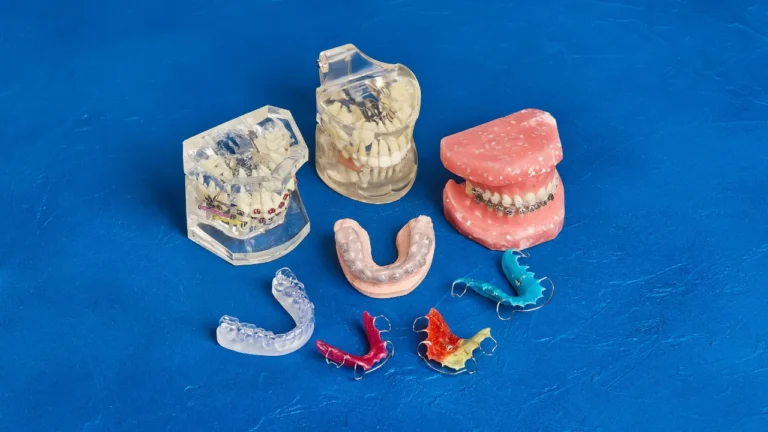Tooth sensitivity is a common dental condition characterized by discomfort or pain in the teeth when they are exposed to certain stimuli, such as hot, cold, sweet, or sour foods or drinks, or even cold air.
It occurs when the underlying dentin layer of the tooth is exposed due to enamel erosion, gum recession, or other factors, which can cause the nerves inside the tooth to become more sensitive to external factors.
Importance of understanding tooth sensitivity
Tooth sensitivity can cause significant discomfort and impact a person’s quality of life, making it difficult to enjoy certain foods or drinks or engage in normal activities such as brushing or flossing.
Understanding the causes, symptoms, and treatment options for tooth sensitivity is important for maintaining good oral health and preventing further damage to the teeth.
Causes of Tooth Sensitivity
How does tooth sensitivity occur
Tooth sensitivity occurs when the protective outer layer of the tooth, called enamel, is eroded or worn away, exposing the underlying dentin layer.
Dentin contains tiny tubules that lead to the nerve center of the tooth, which can become more sensitive to external stimuli when exposed.
Factors that contribute to tooth sensitivity
Several factors can contribute to the development of tooth sensitivity, including:
- Gum recession: When the gum tissue around the teeth recedes, the sensitive roots of the teeth may become exposed.
- Enamel erosion: Acidic foods, cold foods, cold drinks, and certain medications can cause erosion of the enamel, leaving the dentin exposed.
- Tooth decay: Cavities can also lead to tooth sensitivity when they expose the sensitive inner layer of the tooth.
- Teeth grinding: Excessive grinding or clenching of the teeth can wear away the enamel causing tooth erosion and expose the dentin.
- Dental procedures: Teeth may become sensitive after certain dental procedures, such as cleanings, fillings, or whitening treatments.
Lifestyle factors that can cause tooth sensitivity
Certain lifestyle factors can also contribute to tooth sensitivity, such as:
- Poor oral hygiene: Inadequate brushing or flossing can lead to a buildup of plaque and tartar, which can cause gum disease and tooth decay.
- Diet: Consuming acidic or sugary foods and drinks can erode the enamel and cause tooth sensitivity.
- Using tobacco: Smoking or chewing tobacco can damage the teeth and gums, leading to tooth sensitivity.
Symptoms of Tooth Sensitivity
Common signs of tooth sensitivity:
The most common symptom of tooth sensitivity is pain or discomfort when consuming hot, cold, sweet, or sour foods or drinks. Other common signs include:
- Tooth discomfort when brushing or flossing
- Sharp pain when breathing in cold air
- Sharp pain when biting down on hard or crunchy foods
Less common symptoms that may indicate tooth sensitivity In some cases, tooth sensitivity may also cause other symptoms, such as:
- Persistent toothache
- Swollen or bleeding gums
- Bad breath or a foul taste in the mouth
Diagnosing Tooth Sensitivity
How dental professionals diagnose tooth sensitivity?
If you are experiencing tooth sensitivity, it is important to visit a dental professional for an accurate diagnosis.
Your dentist will perform a visual exam and may also take dental X-rays or sensitivity tests to determine the cause of your symptoms.
Sensitivity tests involve applying a small amount of cold air or liquid to the tooth to gauge its sensitivity.
This will help your dentist develop an appropriate treatment plan to address your tooth sensitivity.
Importance of seeking professional diagnosis for tooth sensitivity
It is important to seek professional diagnosis for tooth sensitivity, as other dental conditions such as cavities or gum disease can also cause similar symptoms.
A dental professional can provide an accurate diagnosis and recommend the best treatment options to address your tooth sensitivity.
Treatment and Prevention of Tooth Sensitivity
Overview of treatment options for tooth sensitivity The treatment options for tooth sensitivity depend on the underlying cause of the condition.
Some common treatment options include:
- Desensitizing toothpaste: Special toothpaste can be used to block the tubules in the dentin, reducing sensitivity.
- Fluoride treatments: In-office fluoride treatments can help to strengthen the enamel and reduce sensitivity.
- Dental fillings: If tooth decay is the cause of your sensitivity, your dentist may recommend filling the cavity to protect the tooth.
- Gum grafts: If gum recession is the cause of your sensitivity, your dentist may recommend a gum graft to cover the exposed roots and reduce sensitivity.
Lifestyle changes that can prevent or alleviate tooth sensitivity
In addition to professional treatments, there are several lifestyle changes that can help to prevent or alleviate tooth sensitivity, such as:
- Using a soft-bristled toothbrush: Hard-bristled toothbrushes can damage the enamel and cause sensitivity. Switching to a soft-bristled brush can help to prevent further damage.
- Avoiding acidic foods and drinks: Acidic foods and drinks can erode the enamel and cause sensitivity. Limiting your intake of these foods and drinks can help to prevent further damage.
- Practicing good oral hygiene: Brushing and flossing regularly can help to remove plaque and prevent gum disease and tooth decay, which can cause sensitivity.
- Wearing a mouthguard: If you grind your teeth at night, wearing a mouthguard can help to protect your teeth and reduce sensitivity.
Importance of practicing good oral hygiene habits to prevent tooth sensitivity
Practicing good oral hygiene habits is crucial for preventing tooth sensitivity and maintaining good oral health.
This includes brushing and flossing regularly, using a fluoride toothpaste, and visiting your dentist for regular check-ups and cleanings.
Tooth sensitivity is a common dental condition that occurs when the protective outer layer of the tooth is eroded or worn away, exposing the underlying dentin layer.
It can cause significant discomfort and impact a person’s quality of life, but can be treated and prevented with professional treatment and good oral hygiene habits.





